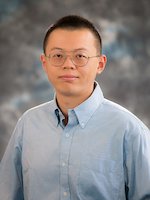Alumnus Kejun Huang receives NSF CAREER Award

Kejun Huang (Ph.D. 2016) was recently awarded the NSF CAREER Award for his project on machine learning that addresses the challenges of unsupervised learning. Huang carried out his doctoral research under the supervision of Professor Nikolaos Sidiropoulos.
The CAREER award winning project is titled “Principled Unsupervised Learning via Minimum Volume Polytopic Embedding” and it addresses some of the challenges of unsupervised learning. Given that unsupervised learning problems are known to be significantly harder than their supervised counterparts in machine learning, the difficulty posed by them has not only affected research and education in the area, but has also persisted for several decades. Huang proposes a framework that unifies various types of unsupervised learning problems by treating all data points as points in a regular polytope guided by a novel matrix volume optimization criterion. The novel framework can not only provide identifiability guarantees, but also a variety of practical applications.

The key highlights of Huang’s project include the designing of a Frank-Wolfe algorithm that will lay the path towards providing global optimality guarantees. The algorithmic framework will aid in the expansion of areas of application to include healthcare settings, power systems, and natural language processing. The experimental work will be carried out on real data aiding in the validation of the framework and its performance.
Kejun Huang is an Assistant Professor in the Department of Computer and Information Science and Engineering at University of Florida. After earning his doctoral degree in 2016, he was a postdoctoral associate from 2016 to 2018 at the University of Minnesota. His research interests include machine learning, signal processing, optimization, and statistics. Professor Nikolaos Sidiropoulos is now with the University of Virginia as Louis T. Rader Professor of Electrical and Computer Engineering.